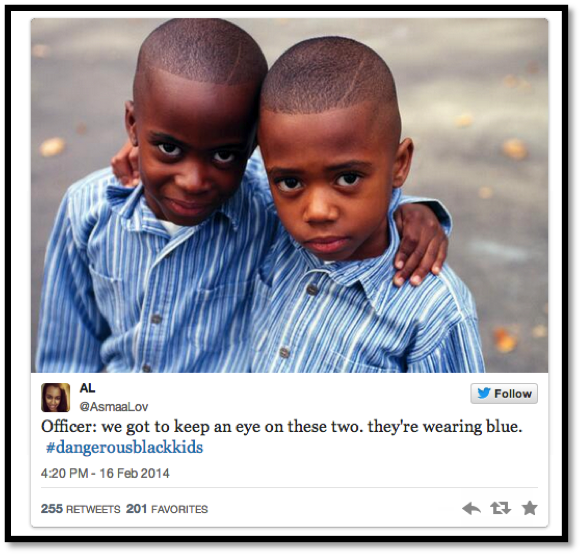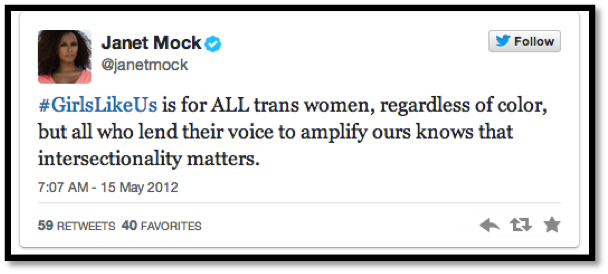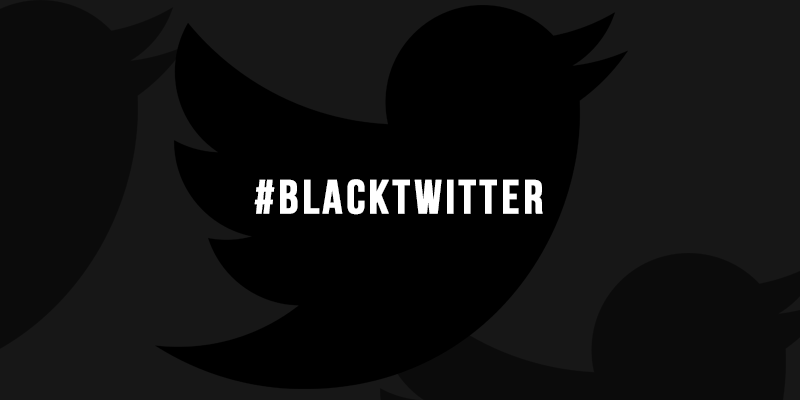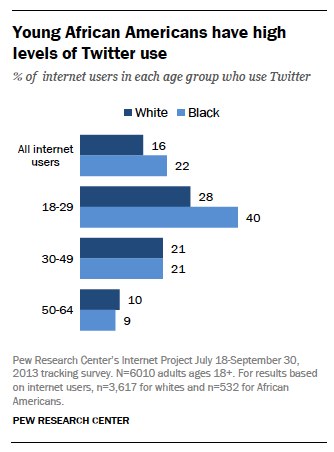by Eric Enrique Borja
This post is based on a larger paper I wrote for AFR/LAS 381: Black Radical Traditions.
_______________________________________________________________________________
In a stirring introduction to the multi-disk collection Voices of the Civil Rights Movement: Black American Freedom Songs, 1960-1966, the scholar, musician, and activist Bernice Johnson Reagon wrote that the “struggle for freedom” revealed “culture to be not luxury, not leisure, not entertainment, but the lifeblood of a community.” It was, she added, “the first time that I know the power of song to be an instrument for the articulation of our community concerns.”
– Ruth Feldstein, “I Don’t Trust You Anymore”: Nina Simone, Culture, and Black Activism in the 1960s.
hashtags like #DangerousBlackKids #solidarityisforwhitewomen #girlslikeus and more prompt INTERNATIONAL convos about real issues.
– Tweet by Franchesca Ramsey (@chescaleigh)
Over the past four years unprecedented large-scale movements have challenged states across the globe, and social media has been an important component in their development and articulation. With the advent of social media sites, such as Facebook and Twitter, people have the technological ability to instantaneously transcend space, time and resources (Aouraugh and Alexander 2011; Castells 2012; Earl and Kimport 2011; Eltantawy and Wiest 2011; Gerbaudo 2012; Hands 2011; Holmes 2012).
According to the World Bank, there are nearly 2.5 billion Internet users worldwide[i]. And according to Facebook’s Investor Relations site[ii] there are over a billion monthly active Facebook users. Furthermore, among African-Americans between the ages of 18-29 40% of them report using Twitter, which is much larger than the 28% of young whites who say they use it (Smith 2014).
The questions I explore in my research are: are we currently living in a historical moment where a new repertoire of contention is emerging? If so, how is social media changing the way we collectively contest for our interests? Therefore, my research focus has been political contention (Tilly 1986, 1995) – how “ordinary people[iii]” contend against the state for their collective interests. But it has been largely limited by how sociologists approach and define political contention. The course AFR/LAS 381: Black Radical Traditions with Dr. Minkah Makalani has expanded my understanding of political contention, reframing how I approach Tilly’s concept of a repertoire of contention.
Is Twitter the underground railroad of activism?
From Richard Iton’s (2008) book In Search of the Black Fantastic: Politics & Popular Culture in the Post-Civil Rights Era to Shana L. Redmond’s (2014) book Anthem: Social Movements and the Sound of Solidarity in the African Diaspora, we see a reframing of what it means to collectively contend against the state. Where Iton (2008, 2013), Redmond (2014) and many other scholars (Cohen 2004; Feldstein 2005; Griffin 2013; Neptune 2007; Sweet 2011) explore the cultural forms/protest tactics of music, literature, religion and dance, I argue the advent of social media in the 21st century has produced a new cultural form where Black politics is developed, expanded and rearticulated. I claim, in other words, that the cultural forms/protest tactics of music, literature, religion and dance constitute an old repertoire of contention, which is today being replaced by a new repertoire of contention that primarily utilizes social media, specifically hashtags (#). This is best illustrated by the social phenomenon popularly referred to as #BlackTwitter.

Adopting a similar understanding of the signifier “Black” that Redmond (2014) uses, “Black” is “a way to call attention to the overlapping projects of diaspora and racial formation that actively seek recognition in mutual struggle” (Redmond 2014:5). With this understanding of the signifier “Black” we can better understand the political potency of #BlackTwitter. In other words, the signifier “#BlackTwitter” refers to those users who are within the diaspora, and who actively articulate their political claims through the use of # such as #DangerousBlackKids, #DonLemonLogic, #girlslikeus and #solidarityisforwhitewomen, to name a few. I claim #BlackTwitter, similar to the Black anthems analyzed by Redmond (2014), “negotiate[s] and announce[s] the ambitions and claims of those whose very bodies [throw] into crisis the normativity of rules and liberties“ (Redmond 2014: 4).
The 21 Biggest #BlackTwitter Moments of 2013
The political potency of # for Black politics resides in the new space/time (Massey 2006) it creates. Which, in turn, fundamentally shifts the process of nation-ness (Anderson 2006) and marks a new phase in the mediazation of modern culture (Thompson 1991); two fundamental shifts comparable to the structural and cultural shifts that formed the modern repertoire of contention (Anderson 2006; Della Porta and Diani 1999; McAdam, Tarrow and Tilly 2001; Swidler 1986; Tarrow 1994; Tilly 1986, 1995; Young 2002).
Furthermore, it is important to keep in mind the unique historical position of Black people when working through Tilly’s concept of a repertoire of contention. Therefore, the new space/time created by the # also provides the place where Black culture and Black politics are rearticulated, forming a community that encompasses the Black diaspora.

So similar to Redmond’s Black anthems, # “constitute differently configured diasporic formations that link people to one another through and beyond race into communities organized by imaginations of freedom from and an end to hierarchies of difference,” (Redmond 2014: 14). The # used by #BlackTwitter are the spaces where such communities are created – where the nation can be rearticulated, subverted, and transcended.
_______________________________________________________________________________
Works Cited
Anderson, Benedict. 2006. Imagined Communities. Brooklyn, NY: Verso.
Aouragh, Miriyam. 2011. The Egyptian Experience: Sense and Nonsense of the Internet Revolution. International Journal of Communication, 1344-1358.
Castells, Manuel. 2012. Networks of Outrage and Hope: Social Movements in the Internet Age. Malden, MA: Polity Press.
Cohen, Cathy J. 2004. “Deviance as Resistance: A New Research Agenda for the Study of Black Politics.” Du Bois Review, 1:1, 27-45.
Della Porta, Donatella and Mario Diani. 1999. Social Movements: An Introduction. Oxford, England: Blackwell Publishers.
Earl, Jennifer and Katrina Kimport. 2011. Digitally Enabled Social Change. Cambridge, MA: MIT Press.
Eltantawy, Nahed and Julie B. Wiest. 2011. “Social Media in the Egyptian Revolution: Reconsidering Resource Mobilization.” International Journal of Communication, 1207-1224.
Feldstein, Ruth. 2005. “I Don’t Trust You Anymore’”: Nina Simone, Culture and Black Activism in the 1960s.” The Journal of American History, 1349-1379.
Gerbaudo, Paolo. 2012. Tweets and the Streets. London, UK: Pluto Press.
Griffin, Farah Jasmine. 2013. Harlem Nocturne: Women Artists & Progressive Politics During World War II. New York, NY: BasicCivitas Books.
Hands, Joss. 2011. @ is for Activism. London, UK: Pluto Press.
Holmes, Amy Austin. 2012. “There are Weeks When Decades Happen: Structure and Strategy in the Egyptian Revolution.” Mobilization: An International Journal 17:4, 391-410.
Iton, Richard. 2008. In Search of the Black Fantastic: Politics & Popular Culture in the Post-Civil Rights Era. Oxford, UK: Oxford Univerisity Press
Iton, Richard. 2013. “Still Life.” Small Axe, 40, 22-39.
Massey, Doreen. [2005] 2006. For Space. Thousand Oaks, CA: SAGE Publications.
McAdam, Doug, Sydney Tarrow and Charles Tilly. 2001. Dynamics of Contention. Cambridge, UK: Cambridge University Press.
Neptune, Harvey R. 2007. “Book Review: Caliban and the Yankees: Trinidad and the United States Occupation.” Caribbean Studies, 37:1, 310-314.
Redmond, Shana L. 2014. Anthem: Social Movements and the Sound of Solidarity in the African Diaspora. New York, NY: The New York University Press.
Smith, Aaron. 2014. African Americans and Technology Use: A Demographic Portrait. Pew Research Internet Project.
Sweet, James H. 2011. Domingos Álvares, African Healing, and the Intellectual History of the Atlantic World. Chapel Hill, NC: The University of North Carolina Press.
Swidler, Ann. 1986. “Culture in Action: Symbols and Strategies.” American Sociological Review, 51:2, 273-286.
Tarrow, Sydney. 1994. Power in Movement. Cambridge, UK: Cambridge University Press.
Thompson, John B. 1990. Ideology and Modern Culture: Critical Social Theory in the Era of Mass Communication. Stanford, CA: Stanford University Press.
Tilly, Charles. 1986. The Contentious French. Cambridge, MA: Harvard University Press.
Tilly, Charles. [1995] 2005. Popular Contention in Great Britain 1758-1834. Boulder, CO: Paradigm Press
Young, Michael P. 2002. “Confessional Protest: The Religious Birth of U.S. National Social Movements.” American Sociological Review, 67:5, 660-688.
[iii] Tilly defines “ordinary people” as those who do not have access to the formal political mechanisms.


